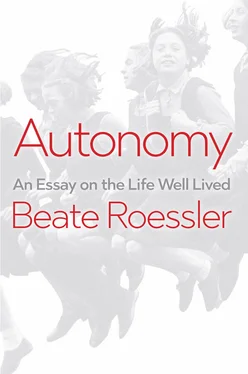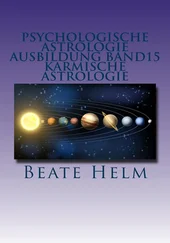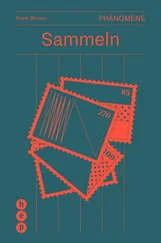I develop this theory, as I have said, little by little – but not with the goal of, having it now in hand, indicating the precise conditions of a life well lived, as in a self-help book. I am rather far more interested in the tension between our understanding of ourselves as autonomous persons and our experience that this autonomy, for a variety of different reasons and in a number of different respects, often fails. And I am also interested in what both – the autonomy and the tension – mean for successfully leading a well-lived life.
1 1 I am not referring here, however, to the paradox of autonomy allegedly found in Kant, which argues that the ideal of autonomy itself cannot even be articulated without contradiction. I will return to this below. See Thomas Khurana, “Paradoxes of Autonomy: On the Dialectics of Freedom and Normativity,” Symposium 17(1) (2013): 50‒74. For a critique of this presumed paradox, see also Pauline Kleingeld and Markus Willaschek, “Autonomy without Paradox: Kant, Self-Legislation and the Moral Law,” Philosophers’ Imprint 19(6) (2019): 1‒18.
2 2 I learned a great deal about Murdoch’s work from A. S. Byatt’s book Degrees of Freedom: The Early Novels of Iris Murdoch (New York: Vintage, 1994).
3 3 Iris Murdoch, Nuns and Soldiers (New York: Penguin, 2002), 352.
4 4 Quoted in Cheryl K. Bove, Understanding Iris Murdoch (Columbia: University of South Carolina Press, 1993), 194.
5 5 Iris Murdoch, A Word Child (London: Chatto & Windus, 1975), 221. Cf. ibid., 126.
6 6 Jonathan Lear, “The Freudian Sabbath,” in Rachel Zuckert and James Kreines (eds), Hegel on Philosophy in History (Cambridge: Cambridge University Press, 2016), 230‒47 (235).
7 7 Iris Murdoch, The Flight from the Enchanter (London: Chatto & Windus, 1956), 246f.
8 8 Samir Frangieh, “The Arab Revolts and the Rise of Personal Autonomy” (interview), Resetdoc, August 20, 2014, http://www.resetdoc.org/story/00000022438
9 9 For a different view, cf. Susan Wolf, Meaning in Life and Why It Matters (Princeton: Princeton University Press, 2010), 3. Wolf differentiates between the meaningful, the happy, and the moral life, a distinction to which I will return repeatedly below.
1 What is Autonomy? A Conceptual Approach
Now it looks as if I am the victim of my own virtuosity. But then what? What would I have done? Become a flautist after all? How will I ever find out? No-one can start at the same point twice over. If an experiment can’t be replicated, it ceases to be an experiment. No-one can experiment with their life. No-one can be blamed for being in the dark. 1
That fall there had been some discussion of death. Our deaths. Franklin being eighty-three years old and myself seventy-one at the time, we had naturally made plans for our funerals (none) and for the burials (immediate) in a plot already purchased. We had decided against cremation, which was popular with our friends. It was just the actual dying that had been left out or up to chance. 2
Autonomy is important to us because we can only take responsibility for our lives and for individual actions when we have determined them – mostly – ourselves, when it is emphatically our own actions that we perform, our own plans that we pursue, our own designs that we strive to implement. If we were manipulated or coerced, then we could not act on the basis of our own reasons. Then it would not be our own values and convictions that form the framework of our actions and intentions. What is more, we could not see ourselves as being responsible for our lives as our own, and we might then feel alienated from ourselves. Before examining all of these aspects more closely, I would first like to ask in a general sense: What is autonomy? The present chapter will briefly (1) situate the concept historically before (2) more precisely clarifying the relationship between autonomy and freedom. Drawing on this, and in light of recent debates around the concept of individual autonomy, I will then explain what “autonomy as a capability” means, thus (3) delineating the framework within which the idea of autonomy as it is discussed in this book can be more precisely located. Finally (4), I will offer a cursory description of the open questions that will have to be answered in the ensuing chapters.
Remarks on the history of the concept
In liberal-democratic societies, the value of autonomy has by now become so self-evident that Joseph Raz calls it a fact of life : “The value of personal autonomy is a fact of life. Since we live in a society whose social forms are to a considerable extent based on individual choice, and since our options are limited by what is available in our society, we can prosper in it only if we can be successfully autonomous.” 3Autonomy is thus a fact of life because since the Enlightenment this idea has become more and more established as a fundamental value and civil liberty in, as well as a basic precondition or even value of, liberal-democratic societies. Raz’s argument is that we can only lead a well-lived life when we also lead an autonomous life. For a life well lived can only be a life that we ourselves want to live, that we ourselves determine, that we have made our own. Robert Pippin makes a similar argument, namely that a direct connection can be drawn between individual autonomy and the meaning of life – people evidently experience their lives as meaningful when they are able to determine their own lives themselves as much as possible and in fundamental ways. This seems to me to be an essential argument for the idea and the value of autonomy, hence I will discuss this connection in greater detail in a separate chapter. 4Autonomy is thus evidently a value that has also been established as a right in liberal-democratic societies. We value autonomy – but what actually is it that we value?
In a general sense, individual autonomy means our ability or capacity to make the laws according to which we act and that we ourselves consider correct. This idea famously goes back to Kant, 5and ever since autonomy has played a central role in ethics and political philosophy. In Kant’s practical philosophy, autonomy as self-legislation means that the will itself creates the moral law according to which human beings are to conduct themselves. Hence the autonomy of the moral law is an expression of practical reason, which categorically dictates behavior and thus places full responsibility for an individual action on the individual herself. Accordingly, for Kant, autonomy is essentially not only a rational but first and foremost a moral concept: we are autonomous and free if, and only if, we are moral and act morally. 6
Autonomy is also a categorical concept for Kant because all people possess autonomy by virtue of their reason; differences of degree are neither necessary nor possible here. The concept of autonomy corresponds to that of the individual’s dignity, which must be respected – no less categorically – in every person. Now there are two histories to be written of the concept of autonomy since Kant: one in which Hegel, as he himself claims, was the first to do justice to the idea of autonomy and free it of the paradoxes in which it remained entangled in Kant; and one which leads from Kant to Mill and on up to more recent debates, particularly in analytic philosophy. 7In terms of content, there are a number of points of contact between these two traditions, and I will come back to them repeatedly throughout this book. The analytic tradition, however, is often seen as being more detailed and less abstract, and so I will take my bearings primarily from this one, although without losing sight of the other.
Since Mill, the concept of autonomy, or in his work especially that of individuality, has aimed no longer exclusively at moral autonomy but in a broader sense at individual liberty, personal autonomy. 8While positions that draw principally on Kant, e.g. those of Christine Korsgaard, do continue to play an important role in contemporary debates, most current conceptions of autonomy proceed from a general idea of personal rather than only or fundamentally from a concept of moral autonomy. Incidentally, Korsgaard also wants to do justice to the idea that we always possess a variety of practical identities – i.e. that we have personal as well as moral autonomy – which must be understood as being specific to individual roles and always embedded in social contexts. However, she argues that the most fundamental of all these practical identities remains our moral identity, which serves as the basis and the source of our normative obligations.
Читать дальше












